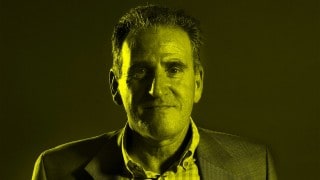It was Michael Crichton who first prominently identified environmentalism as a religion. That was in a speech in 2003, but the world has moved on apace since then and adherents of the creed now have a firm grip on the world at large.
Global Warming has become the core belief in a new eco-theology. The term is used as shorthand for anthropogenic (or man made) global warming. It is closely related to other modern belief systems, such as political correctness, chemophobia and various other forms of scaremongering, but it represents the vanguard in the assault on scientific man.
The activists now prefer to call it “climate change”. This gives them two advantages:
It allows them to seize as “evidence” the inevitable occurrences of unusually cold weather as well as warm ones.
The climate is always changing, so they must be right.
Only the relatively elderly can remember the cynical haste with which the scaremongers dropped the “coming ice age” and embraced exactly the opposite prediction, but aimed at the same culprit – industry. This was in Britain, which was the cradle of the new belief and was a response to the derision resulting from the searing summer of 1976. The father of the new religion was Sir Crispin Tickell, and because he had the ear of Prime Minister, Margaret Thatcher, who was engaged in a battle with the coal miners and the oil sheiks, it was introduced into international politics with the authority of the only major political leader holding a qualification in science. The introduction was timely yet ironic since, in the wake of the world’s political upheavals, a powerful new grouping of left-wing interests was coalescing around environmental issues. The result was a new form of godless religion. The global warming cult has the characteristics of religion and not science for the following reasons.
Faith and scepticism
Faith is a belief held without evidence. The scientific method, a loose collection of procedures of great variety, is based on precisely the opposite concept, as famously declared by Thomas Henry Huxley:
The improver of natural knowledge absolutely refuses to acknowledge authority, as such. For him, scepticism is the highest of duties; blind faith the one unpardonable sin.
Huxley was one of a long tradition of British sceptical philosophers. From the Bacons, through the likes of Locke, Hume and Russell, to the magnificent climax of Popper’s statement of the principle of falsifiability, the scientific method was painfully established, only to be abandoned in a few short decades. It is one of the great ironies of modern history that the nation that was the cradle of the scientific method came to lead the process of its abandonment. The great difference, then, is that religion demands belief, while science requires disbelief. There is a great variety of faiths. Atheism is just as much a faith as theism. There is no evidence either way. There is no fundamental clash between faith and science – they do not intersect. The difficulties arise, however, when one pretends to be the other.
The Royal Society, as a major part of the flowering of the tradition, was founded on the basis of scepticism. Its motto “On the word of no one” was a stout affirmation. Now suddenly, following their successful coup, the Greens have changed this motto of centuries to one that manages to be both banal and sinister – “Respect the facts.” When people start talking about “the facts” it is time to start looking for the fictions. Real science does not talk about facts; it talks about observations, which might turn out to be inaccurate or even irrelevant.
The global warmers like to use the name of science, but they do not like its methods. They promote slogans such a “The science is settled” when real scientists know that science is never settled. They were not, however, always so wise. In 1900, for example, the great Lord Kelvin famously stated, “There is nothing new to be discovered in physics now. All that remains is more and more precise measurement.” Within a few years classical physics was shattered by Einstein and his contemporaries. Since then, in science, the debate is never closed.
The world might (or might not) have warmed by a fraction of a degree. This might (or might not) be all (or in part) due to the activities of mankind. It all depends on the quality of observations and the validity of various hypotheses. Science is at ease with this situation. It accepts various theories, such as gravitation or evolution, as the least bad available and of the most practical use, but it does not believe. Religion is different.
Sin and absolution
It is in the nature of religion to be authoritarian and proscriptive. Essential to this is the concept of sin – a transgression in thought or deed of theological principles.
Original sin in the older religions derived from one of the founts of life on earth – sex. The new religion goes even further back to the very basis of all life – carbon. Perhaps the fundamental human fear is fear of life itself. The amazing propensity of carbon to form compounds of unlimited complexity made the existence of life possible, while its dioxide is the primary foodstuff, the very start of the food chain. Every item of nutriment you consume started out as atmospheric carbon dioxide. It is therefore the ideal candidate for original sin, since no one can escape dependence on it. This manna that gave us life is now regularly branded in media headlines as “pollution” and “toxic”: surely one of the most perverse dysphemisms in the history of language.
The corrective to sin in religion is absolution, and the power of most religions comes from their claim to have the monopoly on absolution. So it is with the new godless religion. Furthermore, it is in the nature of religion to create false markets. In the time of Chaucer the Pardoner sold papal indulgences, which freed the prosperous from the consequences of sin. Likewise, the new pardoners sell carbon offsets. As in so much of both ancient and modern society these activities divert effort from wealth creation and so act as a drag on the economy. They also grant to the rich a comfort that is not available to the poor – a sure road to success.
Proselytes and evangelists
Most religions seek to grow by means of proselytism. Science does not seek or need converts. It teaches those that are willing to learn, but it does not impose itself on those who are indifferent. Religions (at least those that are successful) have a different imperative. A growing cohort of believers reinforces the beliefs of existing adherents and participating in the quest for converts helps assuage the inevitable doubts they might harbour. Successful religions are structured to encompass this expansionary mechanism. Those who can recruit others to the cause are therefore held in high regard.
Der komplette Aufsatz von John Brignell findet sich hier: http://www.numberwatch.co.uk/religion.htm









